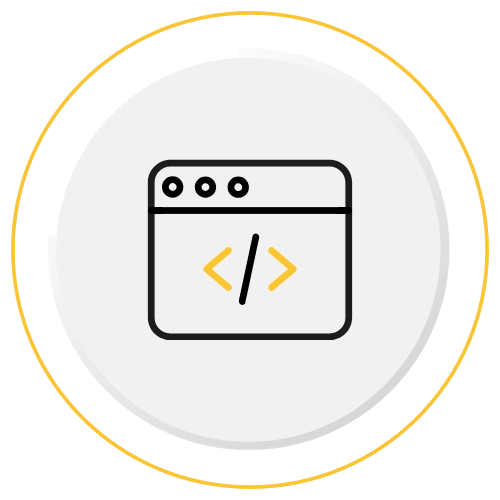
Area 2: Technologies & Analytics
Technologies & Analytics
The “Data for Policy” initiative focuses on utilizing both established and emerging data sources, including personal, proprietary, administrative, and public data. These data sources are crucial for informing decision-making processes in governance. Traditional, theory-driven methods such as qualitative analysis and statistical techniques remain valuable alongside newer, data-driven approaches like machine learning, which together provide complementary insights from both real-time and historical data.
- Data Science and Artificial Intelligence;
- Behavioural and predictive analytics;
- Large language models – foundation models;
- Digital Twins, Ledger Systems, Platforms, Cloud Technologies etc.
- Edge analytics and federated learning;
- User interaction and experience;
- GovTech, RegTech, LegalTech, CivicTech etc.

Key technologies and analytics that are currently driving digital transformation in government and governance include:
Data Science & Artificial Intelligence: These technologies have the potential to revolutionize governmental operations by enabling the analysis of vast amounts of data beyond human capability, with insights that can be delivered instantaneously. This capability supports critical decision-making, evidence-based policymaking, enhanced service delivery, optimized resource allocation, and proactive responses to societal challenges. When developed and deployed responsibly, they can significantly improve public sector operations.
Behavioural & Predictive Analysis: By analyzing patterns and trends in data, these technologies help understand user and citizen behavior, allowing governments to forecast needs and optimize service delivery. This approach enables personalization and effectiveness in public services. However, the deployment of such capabilities must be managed carefully to avoid potential negative impacts at scale.
Large Language Models (LLMs) & Foundation Models: These models have gained significant attention, particularly with the advent of advanced AI tools like ChatGPT. They enable new forms of interaction between citizens and AI, with profound implications for governance and policymaking. These technologies can process and analyze large volumes of information, assist in drafting policy documents, explore various scenarios, and handle citizen inquiries efficiently. They also raise important debates about the ethical implications of AI in society.
Digital Infrastructure: Technologies like digital twins, ledger systems, platforms, and cloud computing provide the backbone for data storage, analysis, and sharing. They ensure safe and secure transactions, facilitate collaboration, and provide scalable computing resources, all of which are essential for seamless digital operations in governance.
Edge Analytics and Federated Learning: These technologies process data closer to the source, which improves performance while preserving privacy and security. By harnessing the collective intelligence of distributed systems, they enable real-time insights from diverse data sources, which can be used to localize and personalize public services in areas like smart cities and public health.
User Infrastructure & Experience Interfaces: New forms of human interaction with technology, such as mobile devices, biometrics, and location-based services, are transforming how citizens engage with government services. Technologies like autonomous systems, robots, and virtual reality are creating new human-machine ecosystems, facilitating greater citizen participation and engagement in public decision-making processes.
Specialized Technologies (GovTech, LegalTech, CivicTech): These technologies are designed for specific governmental, regulatory, legal, and civic contexts, helping to streamline administrative processes, ensure compliance, facilitate legal services, and promote citizen engagement in governance.
Collectively, these technologies provide the tools to transform governance and policymaking in ways that were previously unimaginable. They also introduce new ethical and legal challenges, such as concerns around privacy and the potential risks of a surveillance society. The “Data for Policy” initiative seeks to bring together diverse expertise from across disciplines and sectors to build a transdisciplinary approach to these challenges, helping to shape the future of governance in the digital age.
Area 2 Committee Members:
- Giz Gulnerman, Ankara Hacı Bayram Veli Üniversitesi, Turkey
- Cigdem Gurgur, Purdue University, USA
- Jude Dzevela Kong, York University, Canada
- Emre Simsekler, Khalifa University of Science & Technology, UAE
- Roman Marchant, University of Technology Sydney, Australia
- Micheal Zimba, Malawi Institute of Technology (MIT), Malawi
- Stéphane C. K. Tékouabou, University of Yaounde 1, Cameroon
- Christian Mongeau, Food Agriculture Organization (FAO), Italy
- Davide Rua Carneiro, Polytechnic Institute of Porto, Portugal
- Benjamin Chen, University of Hong Kong, Hong Kong
Exploring Data Technologies and Analytics for Policy and Governance: A Landscape Review
Abstract
Data for Policy (dataforpolicy.org), a trans-disciplinary community of research and practice, has emerged around the application and evaluation of data technologies and analytics for policy and governance. Research in this area has involved cross-sector collaborations, but the areas of emphasis have previously been unclear. Within the Data for Policy framework of six focus areas, this report offers a landscape review of Focus Area 2: Technologies and Analytics. Taking stock of recent advancements and challenges can help shape research priorities for this community. We highlight four commonly used technologies for prediction and inference that leverage datasets from the digital environment: machine learning (ML) and artificial intelligence systems, the internet-of-things, digital twins, and distributed ledger systems. We review innovations in research evaluation and discuss future directions for policy decision-making. Read the full report
